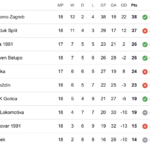ZAGREB, September 7, 2019 – Education Minister Blaženka Divjak has said in an interview with Hina that the ongoing curricular reform has been the most comprehensive change in the schooling system so far.
The main goals of this curriculum reform are to keep students interested in learning and to convey to them more useful contents, the minister said in the interview published on Saturday.
It is important to teach students how to solve problems and to enable them to acquire purposeful knowledge, she says, noting that the new curricula, which will implemented as of the start of this new school year, are replacing 25-year-old curricula which had been the result of adjustment to the new system at the time.
New curricula are being implemented in first and fifth grade of primary schools, in seventh grade for subjects Biology, Chemistry and Physics and in first grade in upper secondary schools as well as in four-year vocational schools in general education subjects. Thus, as many as 150,000 pupils in are covered by the new curricula.
Primary and secondary schools throughout Croatia will open their doors for slightly over 464,000 students on Monday, the first day of the new school year, according to statistics provided by the education ministry.
Of them, 318,000 are elementary school students, including 38,000 first graders, and 146,000 are attending secondary education.
In this school year, the number of primary school first graders was lower by 500 compared to the previous school year.
The highest number of first graders, 8,000, is in the City of Zagreb, and in Split-Dalmatia County, 4,400. On the other hand, only 363 first graders enrol in primary schools in Lika-Senj County.
When it comes to secondary education, there are about 40,000 freshmen this year, and 11,000 of them are in general education schools called “gimnazije”. As many as 26,500 enrol in vocational schools, 1,200 more students than last year’s stats on freshmen in vocational programmes, whereas there are about 2,500 pupils in programmes at music or art schools.
Considering three-year vocational education, training programmes for cooks and hairdressing career are still most sought-after, according to data provided by the ministry.
More news about curricular reform can be found in the Politics section.







